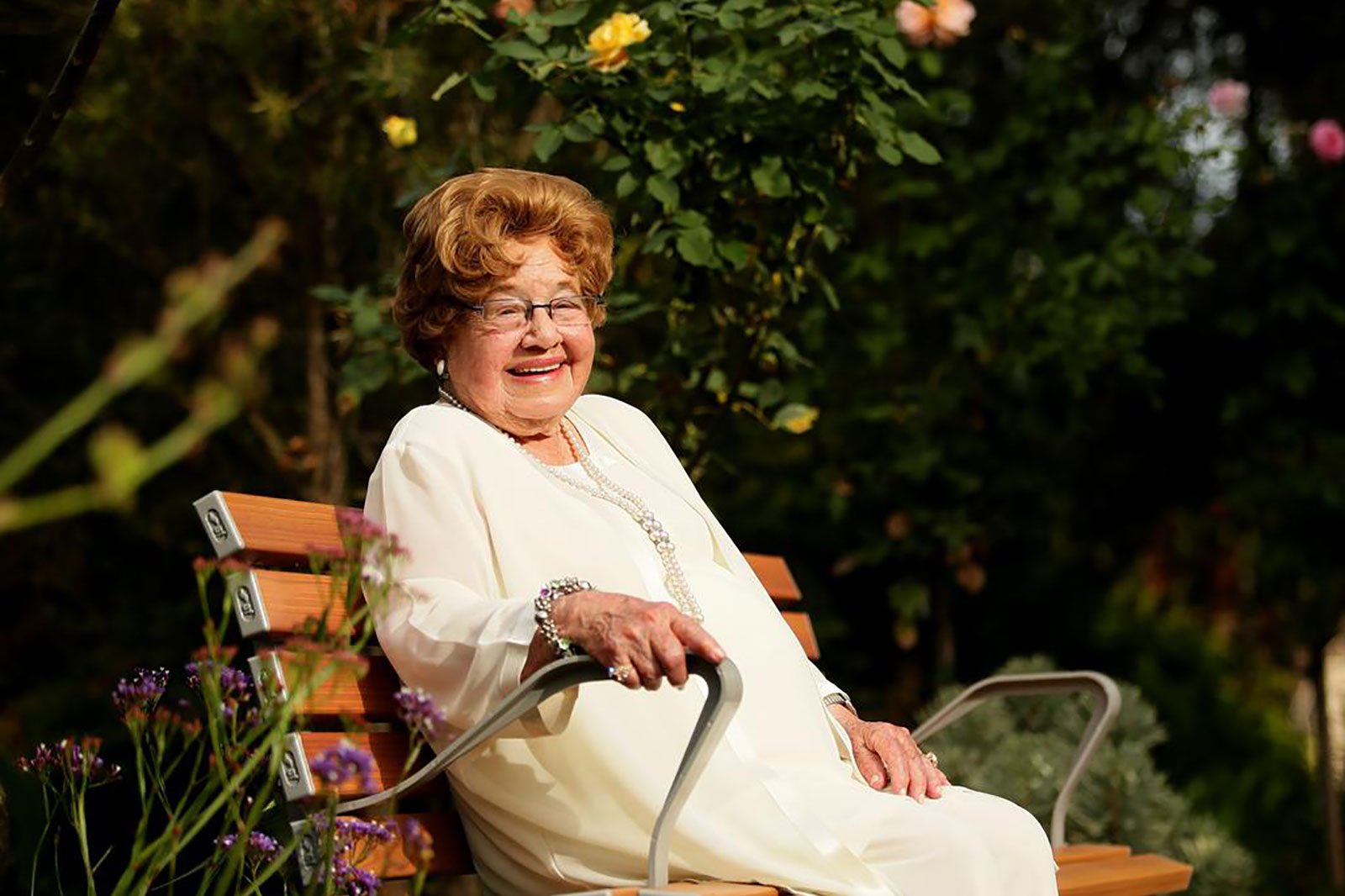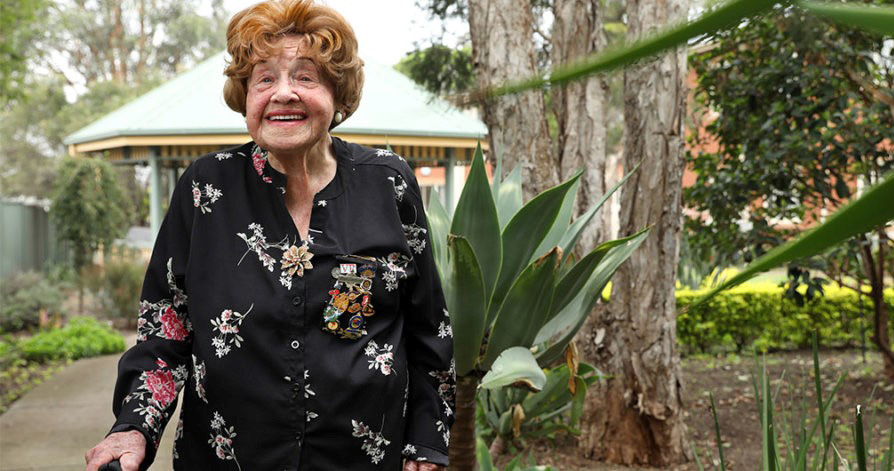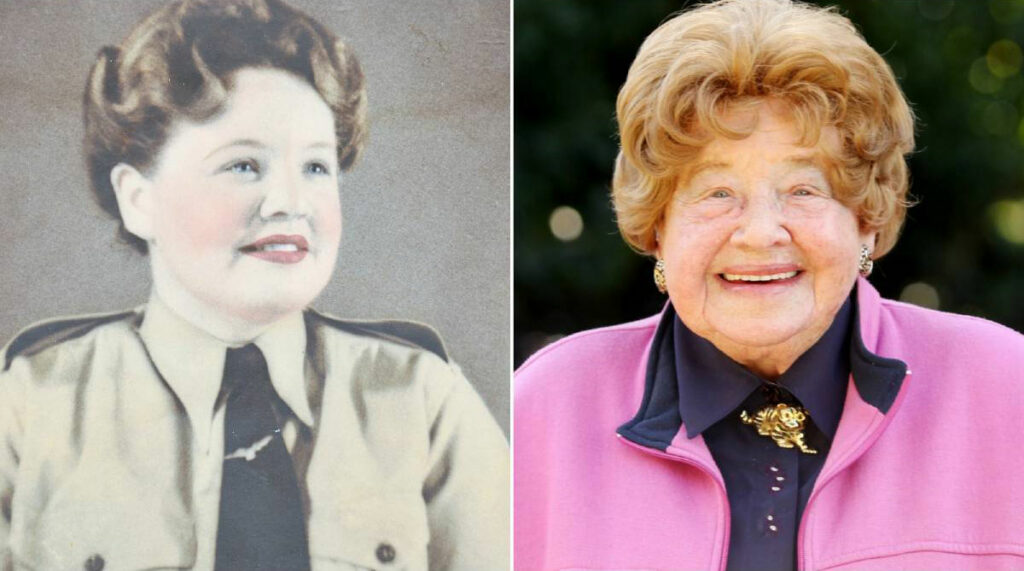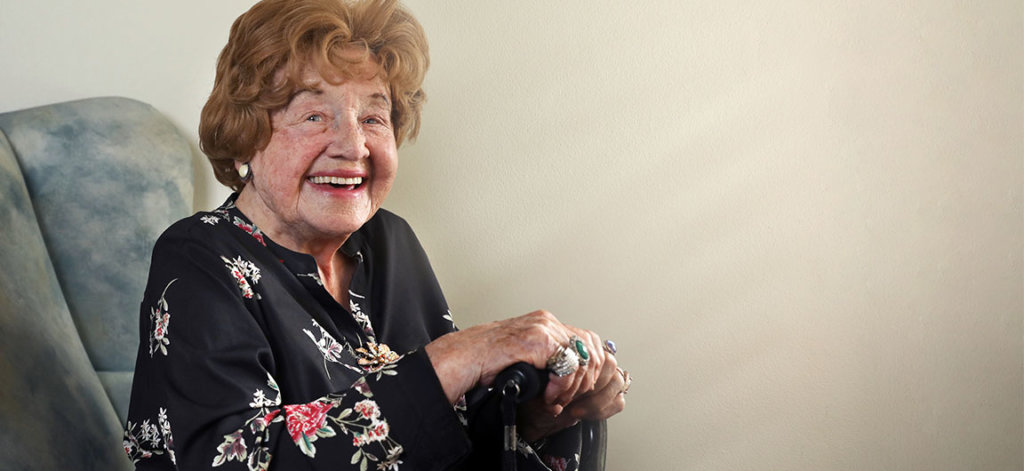
Leniece
When you give to Legacy, you are providing vital care to young veterans’ families, like Leniece’s, who are grappling with the unexpected loss or injury of their loved ones. ...
Read story
From sewing uniforms while in the RAAF during WWII, to tailoring clothing for prime ministers, 103-year-old Iris Terry has led a full life and isn’t planning on winding down anytime soon.
One of Iris Terry’s favourite perks of being in the Royal Australian Air Force (RAAF) during World War II was seeing Australia from the air. Pilots whose planes had been serviced at RAAF Base Richmond were required to fly a test flight. Often, they would invite one or two servicewomen along for ‘the joy ride’, Iris explains.
Iris was looking forward to such a flight on 20 December 1944, but was so busy stitching aircraftmen’s uniforms that day that she stayed diligently at her workstation. Two of her closest friends went on the flight instead and were killed instantly, along with the pilot, when the plane crashed.

Had Iris died that day she would have been 27 – another war statistic, yet she survived, and she turned 103 on 19 May 2020. Iris excitedly announced, “I may be old, but I can still do this”.
The unexpected dance she performs wouldn’t merit a high score on one of the latest generation of TV dancing shows, but it would make her a crowd favourite in any situation. Except most of us who dream of becoming centenarians don’t expect to be standing, let alone nimble-footed, if we make it to that milestone.

Born Iris Pfitzner in Griffith NSW, in 1917, Terry and twin Edna were two of eight siblings – four girls and four boys – in a staunch Lutheran family. Their father Adolph was a country vet, their mother Isobel a woman of infinite practical accomplishments, who taught her daughters the value of sewing and ran a home laundry to supplement the family income during the Depression.
When World War II broke out virtually the entire family tried to enlist. But her father, Iris says, was considered too important for the home front and was politely told to stay serving the Griffith agricultural community. Four of Iris’ siblings (including Edna) all joined the Australian Army. Iris alone chose the RAAF, which she joined as an aircraftswoman (service number: 176819) in April 1944.
When asked why she didn’t choose the Army, Iris says, “I loved the Air Force, and their uniforms were better”.
Even before Iris left Griffith, she was a talented seamstress. During her Air Force career, she and other women stationed at Richmond had the sole task of equipping the men about to serve on the front line with beautifully tailored uniforms and whatever other equipment they needed.
It may sound like a cushy number, but Iris recalls the women were often forced to work through the night to ensure the men were fully prepared for combat, before they boarded the ships taking them to the front line.
A close bond was forged between the back-room women, who were given as little as 24 hours to fit an entire squadron. This made the loss of friends, like the two killed in the plane crash, even more emotional.
Once the war was won Iris was expected to return to the Riverina region, but she told her parents she was staying in the New South Wales capital.
“I just love Sydney,” she explains. “[There is] nowhere else like it in the world.”
Soon after being discharged from the RAAF on 18 December 1945, Iris met Emerson Terry, her future husband. He had been in the Army but was now back working as a master builder.
They married a year later. Iris looked resplendent in her wedding gown, which she made with the help of a friend from Griffith. They then purchased a block of land at Carramar and lived their lives in the home Emerson built for them.
Although the couple were unable to have children, Iris devoted herself to her tailoring career, her marriage, a social life built around church and a huge extended family, inherited via her nieces and nephews.
Each working day she would catch the train to Central Station, then walk to work at Wynyard for exercise.
The gowns, suits and exquisite outfits she made were worn by judges, barristers, businessmen – even prime ministers.
She doesn’t recall the names of her prime ministerial clients now, except one: Paul Keating – “the boy from nearby Bankstown”, who was easily the most fastidious about his suits. Since she never received a complaint from Keating, she presumes he liked “the cut of her cloth”.
Her twin, Edna, died of a heart attack when she was 45, and Emerson was only 60 when he died. Iris continued working until she suffered her first stroke in 2002, at 85.
She stayed living in their house until 2014 when a second stroke seriously affected her speech, forcing her to move to her present home, Rosary Village, a Catholic retirement home in nearby Yennora.
“I love it here,” Iris says. “Every day I walk around the grounds in the morning. I’m the only resident who does that. The rest prefer to stay inside.”
Relatives have asked her to go to live with them in Brisbane, she says. But there’s still too much fun to be had in Fairfield. She puts her longevity down to keeping busy and remaining active, and her wide circle of friends.

Fay Poulter, a former Carramar neighbour and friend of 54 years, is her unpaid chauffeur and companion, taking Iris to her regular social engagements. Together they go to meetings of the Fairfield Ladies Auxiliary and Liverpool Legacy (they’ve had to give up attendance at War Widows’ events since Iris moved to Rosary Village). Iris is also godmother to Fay’s adult daughters.
She still has the same zest for life. In November last year, Iris took to the stage at Fairfield RSL sub-Branch’s fundraising rock and roll lunch to dance to ‘Shake, Rattle and Roll’, popularised by Bill Haley & His Comets in 1955, when Iris was 38.
And she’s right: she definitely still has the moves.